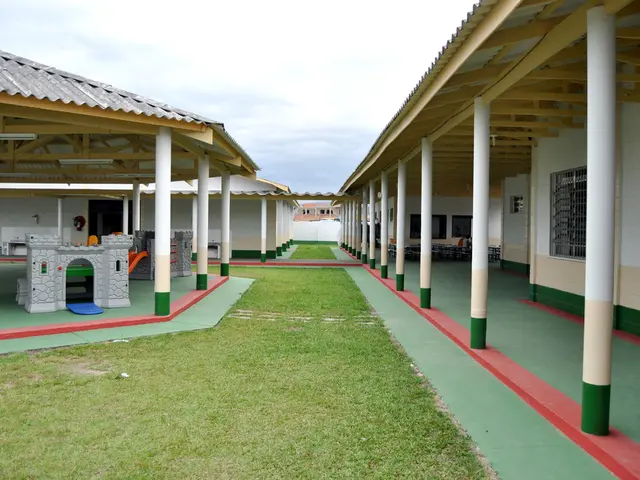Appointment Announced: National Policy Director and Fiscal Policy Advisor Take Up Their Roles in the Administration's Top Office
Kim Yong-beom, the New Brain behind President Lee's Policy Push
Kim Yong-beom, a seasoned economist with a diverse background in public and private sectors, has been tapped by South Korean President Lee Jae-myung to steer the country's national strategy. This appointment took place on June 6, placing Kim in the role of Presidential Director of National Policy, more colloquially known as the head of the presidential policy office or chief of staff for policy [YONHAP].
The Man Behind the Appointment
With a rich career spanning the Ministry of Economy and Finance, the Financial Services Commission, and even the World Bank, Kim Yong-beom brings a wealth of experience to the table. His specialization in macroeconomic policy and crisis management has been particularly evident during South Korea's response to the COVID-19 pandemic [1][2].
Most recently, Kim served as the CEO of Hashed Research, a blockchain-focused think tank, demonstrating his adaptability in the rapidly changing tech landscape [3][4].
The Powerhouse Team for Lee Jae-myung's Administration
President Lee's appointment of Kim Yong-beom is part of a broader government reshuffle aimed at strengthening the administration's capacity to fulfill campaign promises, particularly those focusing on economic challenges and improving public livelihoods. The reshuffle includes the creation of new senior roles such as a fiscal policy adviser and additional secretaries for economic growth and social affairs [1][2][5].
Kim's appointment is seen as a strategic move to bring in a global perspective and a proven track record in policy implementation, making him "the right person to implement President Lee’s campaign pledges and respond to the current livelihood crisis" [1][2][5].
The Focus on Economic Growth and Social Welfare
The government overhaul is geared towards promoting economic growth engines like artificial intelligence, and ensuring effective policy leadership in fiscal planning and social welfare initiatives [5]. In essence, Kim Yong-beom's appointment represents a key step in President Lee's strategy to revitalize the national policy apparatus, positioning the administration with seasoned leadership to deliver on its economic and social policy agenda.
- Kim Yong-beom's role as Presidential Director of National Policy places him at the helm of South Korea's economic strategy, a position that was reinforced by his extensive experience in global finance and policy-and-legislation, particularly in the Ministry of Economy and Finance and the Financial Services Commission.
- The appointee's expertise in macroeconomic policy and crisis management, showcased during South Korea's response to the COVID-19 pandemic, is expected to guide the administration's approach to economic growth and social welfare improvements.
- President Lee's recent government reshuffle, which includes the addition of senior roles like a fiscal policy adviser and secretaries for economic growth and social affairs, aims to strengthen the administration's capacity in business, finance, and general-news sectors to fulfill campaign promises.
- The appointment of Kim Yong-beom and the subsequent government overhaul underscore President Lee's commitment to targeted policy implementation and effective leadership in policy areas such as fiscal planning, social welfare, and technology sectors like artificial intelligence, with the ultimate goal of revitalizing the national policy apparatus and delivering on the administration's economic and social policy agenda.






